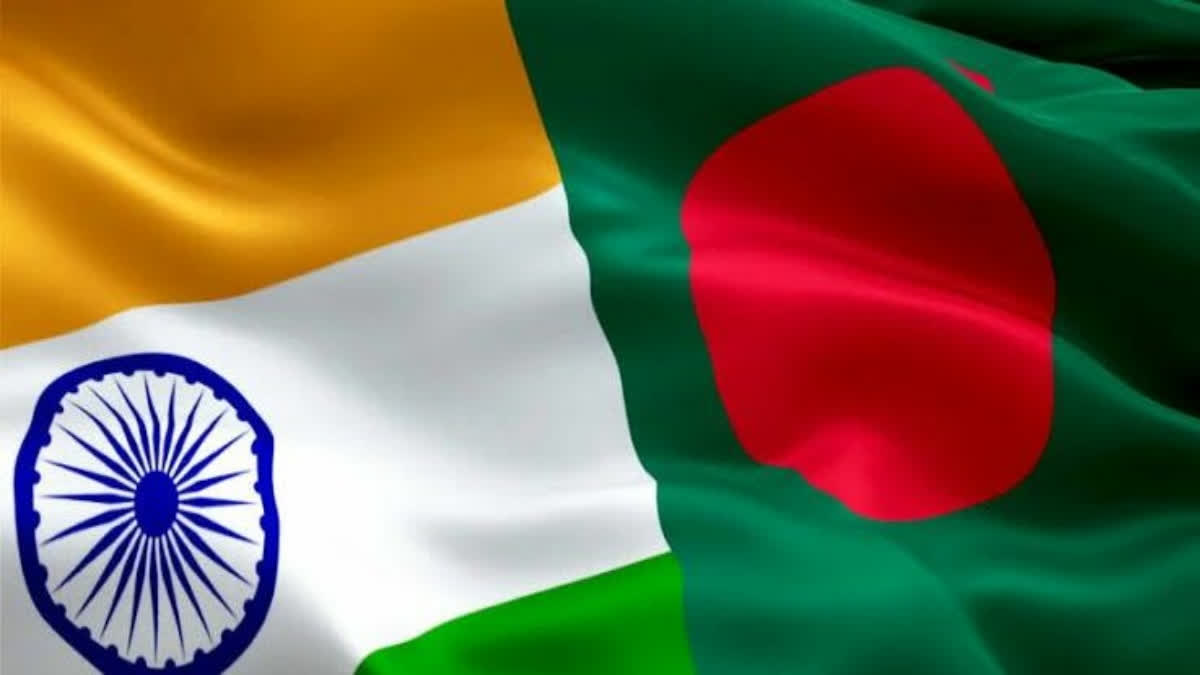New Delhi: In what will be welcome news for New Delhi, Bangladesh Prime Minister Sheikh Hasina has reaffirmed her country’s commitment to continue cooperation and friendly ties with India if she is voted back to power.
Releasing the ruling Awami League party’s manifesto on Wednesday ahead of the general elections on January 7, Hasina said that if her party is elected back to power, Bangladesh’s development cooperation with all the countries will continue.
The manifesto makes specific mention about India-Bangladesh relations stating: “The long-standing problem of demarcation of land boundaries and exchange of enclaves with India has been resolved. This achievement has encouraged continued multilateral cooperation and friendly relations with India.”
Highlighting the foreign policy priorities of her party, Hasina said that “cooperation with neighbouring countries will continue in various areas, including cross-border communication, transit, energy partnership, and equitable water sharing”.
“Bangladesh is firmly determined to prevent the presence of militants, international terrorists, and separatist groups on its territory,” she said. “The Awami League government will play an important role in forming the South Asia Task Force to combat terrorism and militancy to root it out from the entire region.”
According to Sharin Shajahan Naomi, an academic and social activist of Bangladesh who is currently pursuing her post-doctoral fellowship at KREA University in India, raising the issue of combating terrorism indicates that Hasina will continue to work for ensuring security in India’s northeastern region. “The cross-border communication, transit and anti-terrorism agenda indicates that she is eager to strengthen the partnership with India,” Naomi told ETV Bharat.
According to the manifesto, cooperation with India will continue in the areas of bilateral trade and security. New areas of cooperation with India, Bhutan and Nepal will include energy cooperation and joint river water management.
India and Bangladesh have been locked in the Teesta river waters sharing issue for a long time now. The issue could not be resolved till now because of objections raised by West Bengal Chief Minister Mamata Banerjee.
The Awami League is all set to sweep back to power with the main opposition Bangladesh Nationalist Party (BNP) deciding to boycott the elections. The BNP had demanded that a caretaker government be installed ahead of the elections but Hasina had not acceded to this. According to Western critics, the elections not being held under a caretaker government raises the question of legitimacy of the whole process. It may be mentioned that, between 1991 and 2008, four elections were held with caretaker governments in place. Both the Awami League and the BNP were alternatively in power during this period.
However, after the Awami League came to power in 2008, it abolished the caretaker government system. This step was taken as the caretaker government installed ahead of the elections that year continued in power for two years and developed its own agenda.
Following this, the BNP had boycotted the 2014 parliamentary elections citing unfair conditions following months of protests, strikes and blockades. In the 2018 parliamentary elections, the BNP participated after being given assurances of a level playing field but with its leader and former Prime Minister Khaleda Zia being ineligible to contest due to a previous conviction in a corruption case, the party was completely routed managing only seven seats in the country’s 350-seat parliament.
The Awami League’s 2024 election manifesto is based on the theme “Unnoyon drisshoman, barbe ebar kormoshongsthan” (Development is visible, now it is time to increase employment). It places a strong emphasis on creating fresh employment opportunities for 15 million youth by the year 2030.
“Bangladesh will be established as a high-middle-income country by 2031 and a developed, prosperous, smart one by 2041 by the Bangladesh Awami League, the bearer of the spirit of the Liberation War, if the people once again allow us to serve them by voting for the boat, the Awami League’s electoral symbol,” the Daily Star quoted Hasina as saying while releasing the manifesto.
She unveiled the four pillars of the Smart Bangladesh 2041 plan – smart citizen, smart administration, smart economy and smart society. “In the 2008 election manifesto, we announced Vision 2021, which was a charter of change. We successfully ran the country after overcoming hundreds of hurdles by winning the 2014 and 2018 elections,” Hasina said.
The Awami League manifesto prioritises 11 key issues for Bangladesh: affordable commodities; vocational education and employment; Smart Bangladesh; profitable agriculture; industrial expansion; bolstering the financial sector; accessible healthcare; universal pension; law enforcement accountability; combating extremism; and promoting and protecting democratic practices.
Also read:



